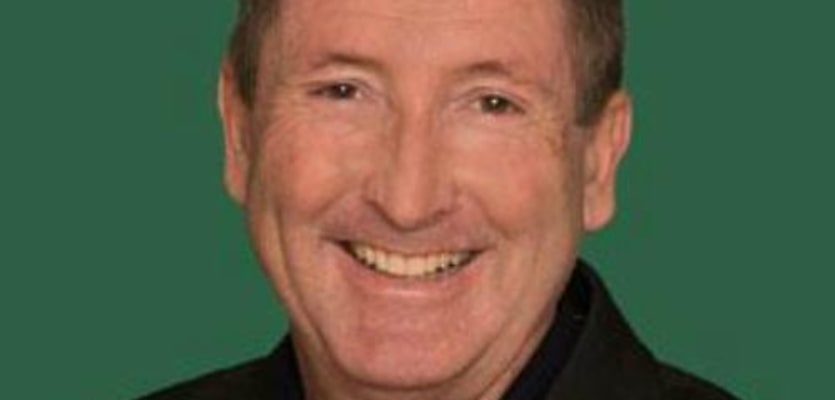Are you a chief operations officer?
Blogger: Mark Lodge, CEO, RealSave
Welcome to the first article for the chief operational officer (COO). No matter what stage of the business cycle your agency is in over the coming issues, we will provide you with insightful assistance about the operational issues that all agencies face.
Let’s start with a clean slate by having a clear understanding of what roll of the chief operating officer in a real estate agency is. The role can at times be very similar to that of the chief executive officer (CEO), particularly in a small agency where the CEO wears both hats until the roll can be subjugated. A CEO or principal will often engage a chief financial officer (CFO) before a COO, as the day-to-day financial aspects of the business are less attractive activities to an entrepreneurial personality.
What are the roles?
In very basic terms, the CEO’s core concern is asset development and finance. The role of the CEO is to communicate the vision to the executive team; it is the role of the team to deliver it, even if the team is just you.
The COO is responsible for working with the line managers, the day-to-day operations of an organisation, reporting directly to the CEO. The COO has a detailed understanding of business, profit and loss, revenue and asset creation.
A good COO is not sales centric, he/she understands that as important as it is to list and sell, there is much more to a successful agency. At the end of the day, it is a business and there are basic business principles that need to be applied.
The CFO is directly involved in the finances of the organisation. The CFO’s team manages the income and expenditure aspects, but needs to work closely with the COO because there are practical operational considerations that need to be implemented to maximise revenue and reduce expenditure.
Many considerations
In smaller agencies, the principal regularly takes on the role of the CEO, COO and CFO; often taking on a sales role as well. Does this sound like you? No wonder you're time poor, stressed out and exhausted.
Over the coming issues, we will look at how you can improve your quality of life by working through the different operational aspects of a successful agency. We will have input from principals that manage it all, as well as prominent COOs, CEOs and CFOs from both real estate and general business. Could you make more money by subjugating these rolls in your agency? We will talk with people who have, and give you practical advice about how you can start the process and when is the right time to start.
As Glenn Cream (COO of Ray White Surfers Paradise) says: “With the unique nature of real estate and in particular with The Ray White Surfers Paradise Group, which consists of 16 offices, locally, nationally and internationally is a very hands on role. As COO, I must have an intimate knowledge of the organisation's objectives and be able to deliver key outcomes to the broader leadership team across the group."
Key components include building key relationships with suppliers to deliver the best service opportunities to the group, creating efficiencies in a cost-effective nature. As well as this, a COO often works as the 'glue' of the organisation. A COO needs to be involved and aware of the strategic future direction of the organisation, while at the same time ensure the day-to-day operation is effective and efficient.
Nurturing and preparing staff is a key aspect, as well as assisting in the human resource areas to evolve organisational structures and policies in preparation for any change that may be required to deliver the strategic direction set by the CEO.
No day is ever the same for a COO, and you often find yourself the 'go to' person between staff, managers, clients, suppliers and the organisational leaders. It is a rewarding job and requires someone who can resolve issues quickly, can think of the bigger picture of the organisation and apply it to the day-to-day operation.
What you can look forward to
Over the coming issues, we will help to develop a path, delivering operational solutions. The COO is the pivot point of the organisation, keeping all the balls in the air without dropping one; this is the key to your agency's business success. How well are you juggling right now?
We will work through the practical items you deal with, including staff retention (HR), advertising, sales management, property management services, training CPD sales techniques and motivational, internal and external communications, print and print services, marketing, campaign management and social media, accounting processes, and working with the CFO to deliver reports, cost control and revenue strategies all within the framework of the CEO’s vision.
As a COO, you should know how much time your organisation spends on the three key components of your business:
- The cost centres of your business - accounts, suppliers, prospecting, legal etc. In short, the areas that do not create revenue or growth but cost money
- The revenue generating components of your business - sales, rentals and asset realisation
- Asset creation and extension - your future growth
We will discuss why these aspects are important and what areas require more focus at different times in the agency’s life cycle.
The COO's contribution to the business might not be seen to be as sexy or as cool as sales, but effective management of the operational aspects of the business will see increases in revenue, decreases in costs and a clear path for sustainable business growth as we move into better market conditions. An agency with a good operations platform is better positioned to seize the opportunities than an agency that is just a sales office, not a real estate business.
ABOUT THE AUTHOR

mark-lodge
Mark Lodge is the CEO of RealSave. The company's objective is to deliver professional procurement services that positively impact on the bottom line of SME, without undue input from the proprietor. Mark is passionate about small businesses and helping owners maximise their potential while saving time and money.







You are not authorised to post comments.
Comments will undergo moderation before they get published.